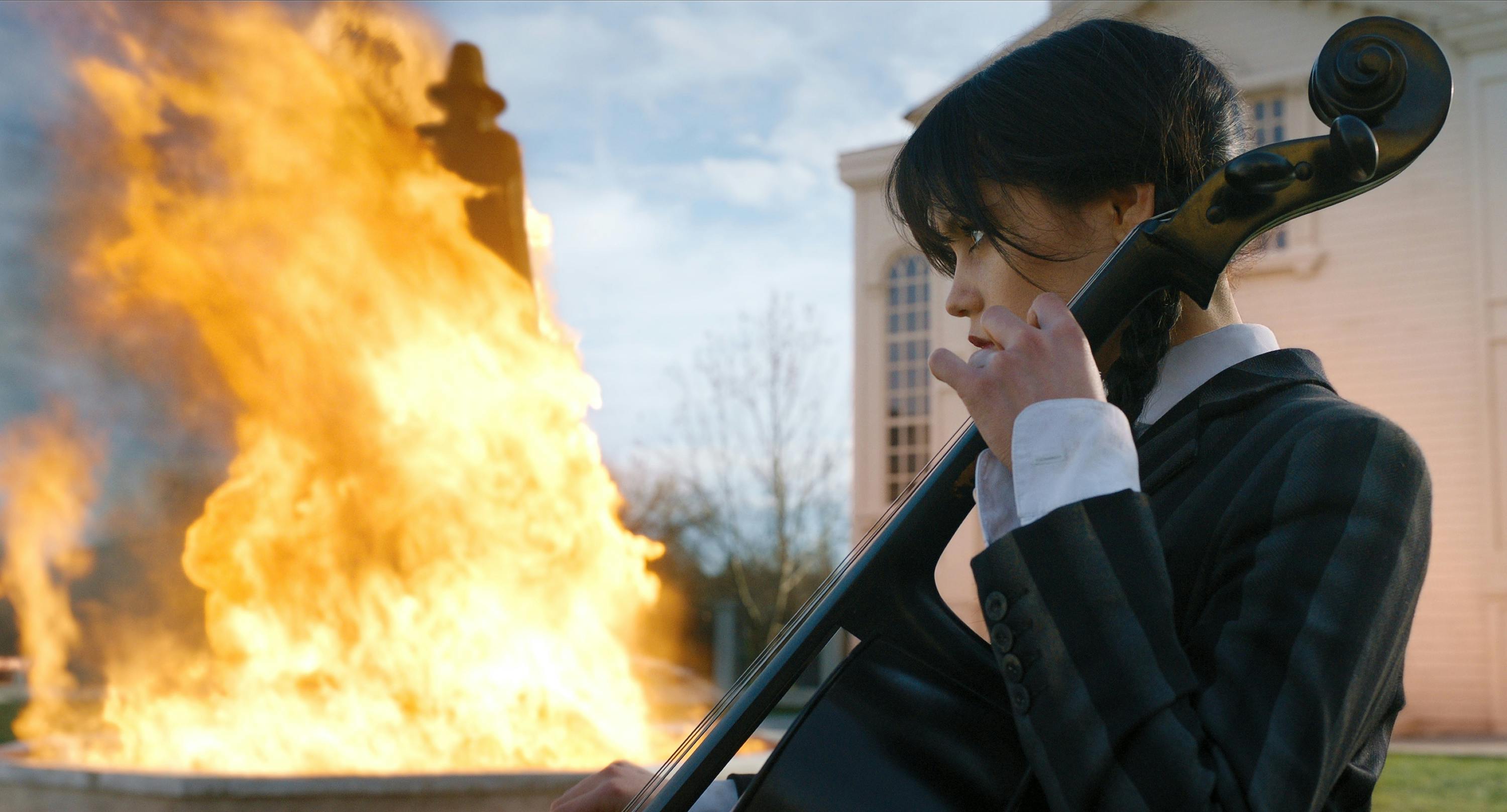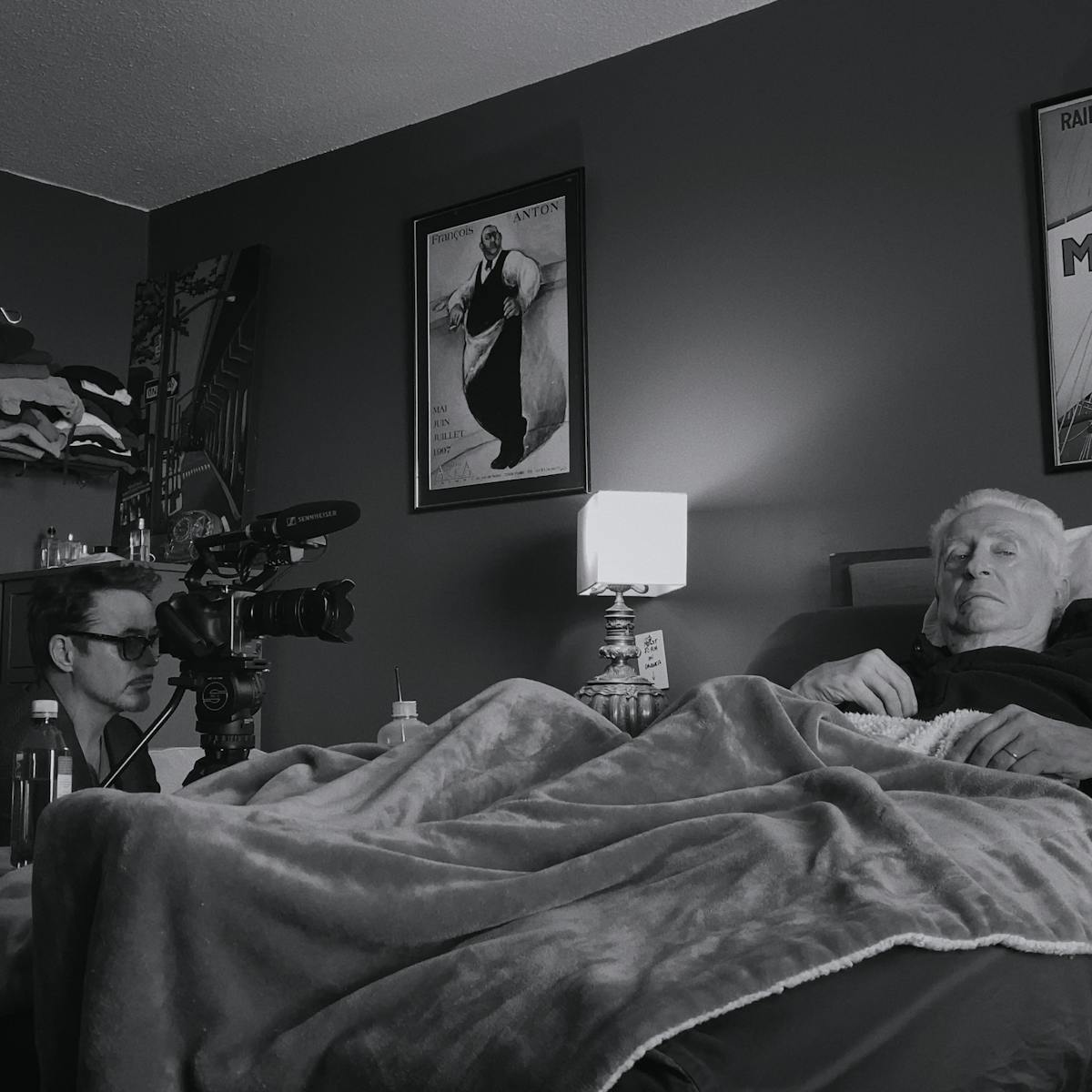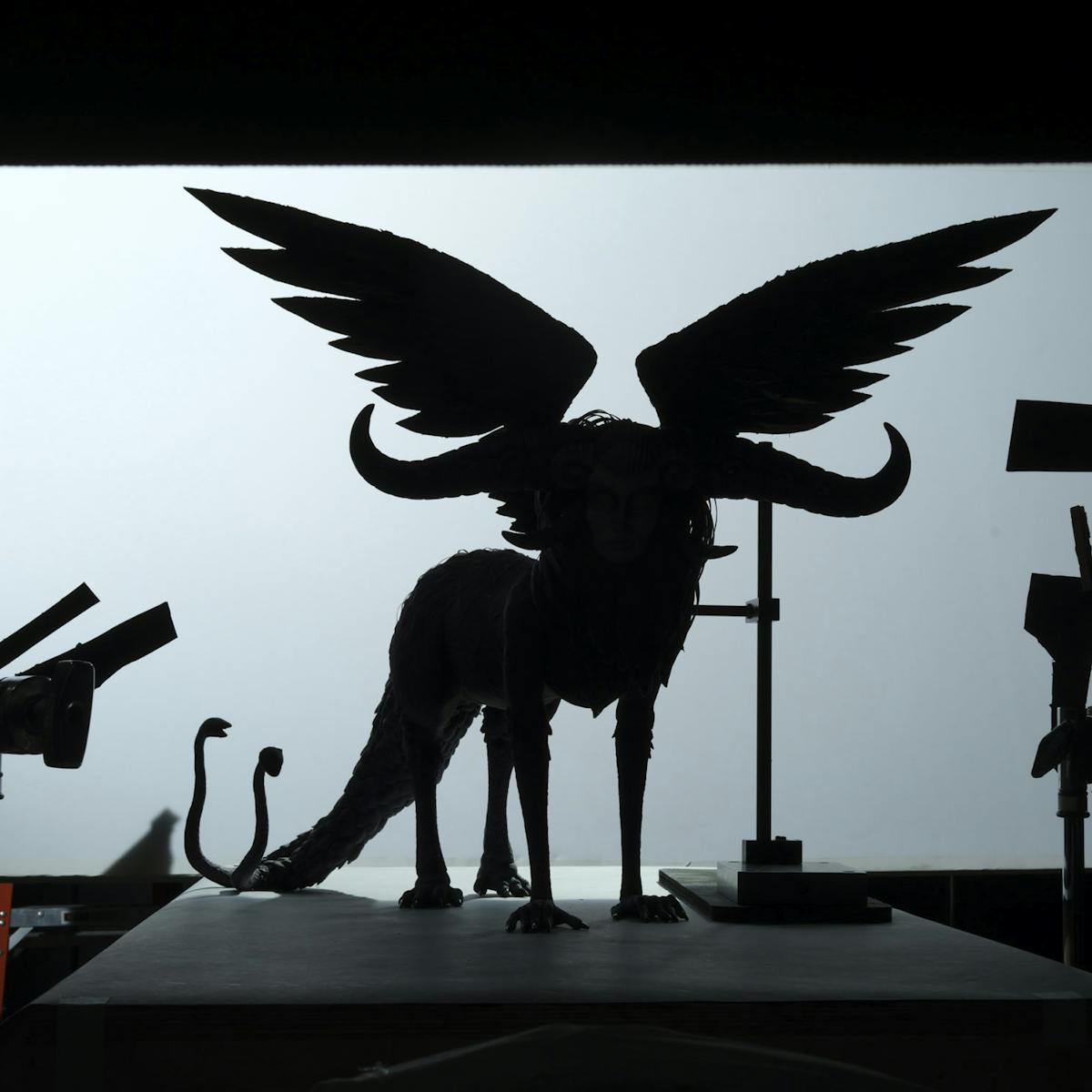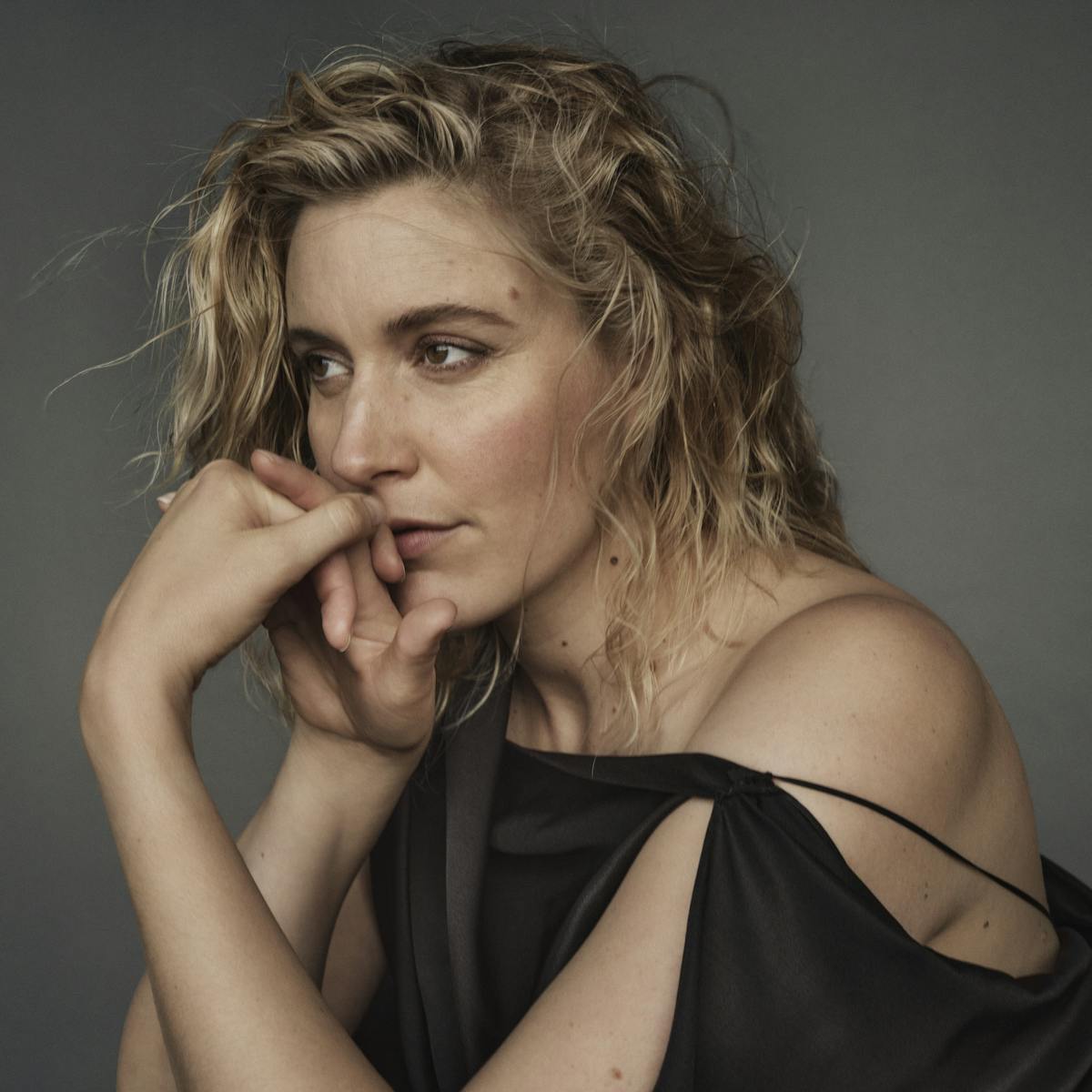In her unstoppable career and as Wednesday Addams in Tim Burton’s hit series, the young superstar won’t let anything get in her way.
When Tim Burton first approached Jenna Ortega to star in his series Wednesday, she was hesitant. “When this job came around, I had just started to do more films; I’ve always wanted to get into film,” Ortega says. But the opportunity was too good to pass up: “With a character as legendary and badass as Wednesday and the opportunity to even chat with someone like Tim Burton whose films have inspired so many other great artists and have inspired me as well, I just felt like it would be really stupid to not take that meeting.” The actor’s decision to join showrunners Alfred Gough and Miles Millar’s Addams family adaptation has paid off: In its first three weeks of streaming, Wednesday became the second most-viewed English language series in Netflix history.
Ortega got her start like many young actors, gracing hit Disney series such as the animated Elena of Avalor (2016–2020) and Stuck in the Middle (2016–2018); and as the younger version of Gina Rodriguez’s Jane in Jane the Virgin (2014–2019). But in recent years, the actor has dominated in a range of starring roles on the big screen and has transitioned toward darker storylines — in 2022 Ortega cemented herself as a scream queen in both Scream 5, the latest installment of the meta-horror series, and X, Ti West’s buzzy slasher featuring Mia Goth, Brittany Snow, and Scott Mescudi.
As Wednesday Addams, the goth pigtail-wearing savant, Ortega’s onscreen experience in teen titles and horror dovetails beautifully. The 20-year-old actor finds an exceptional balance between deadpan adolescent and apt detective as she investigates the mysterious occurrences at her new school (also her parents Morticia and Gomez’s alma mater) Nevermore Academy. Nevertheless, playing Wednesday held its own challenges, including a series of new skills to learn: “It was just a lot: cello, archery, fencing, boxing, German at some point, choreographing the dance,” remembers Ortega.
The dance, which has become a social media sensation, follows in the footsteps of Wednesday actor Lisa Loring’s iconic dance in the original 1960s The Addams Family series. Wednesday is rich with nods to its lineage: Christina Ricci, who played the brooding girl in 1991 and 1993 films The Addams Family and Addams Family Values, joins the cast as botany teacher and dorm mom Marilyn Thornhill. There is one notable departure from the canon in the new series: Ortega’s Wednesday is the first to be depicted not as a child, but as a teenager.
After a screening of the first episode of Wednesday at The Roxy Hotel, Highsnobiety’s editor-in-chief Willa Bennett hosted a Q&A with Ortega, covering everything from how Wednesday upends traditional portrayals of teenage girlhood to the fierce dance that’s reigning over everyone’s social media.
An edited version of the conversation follows.
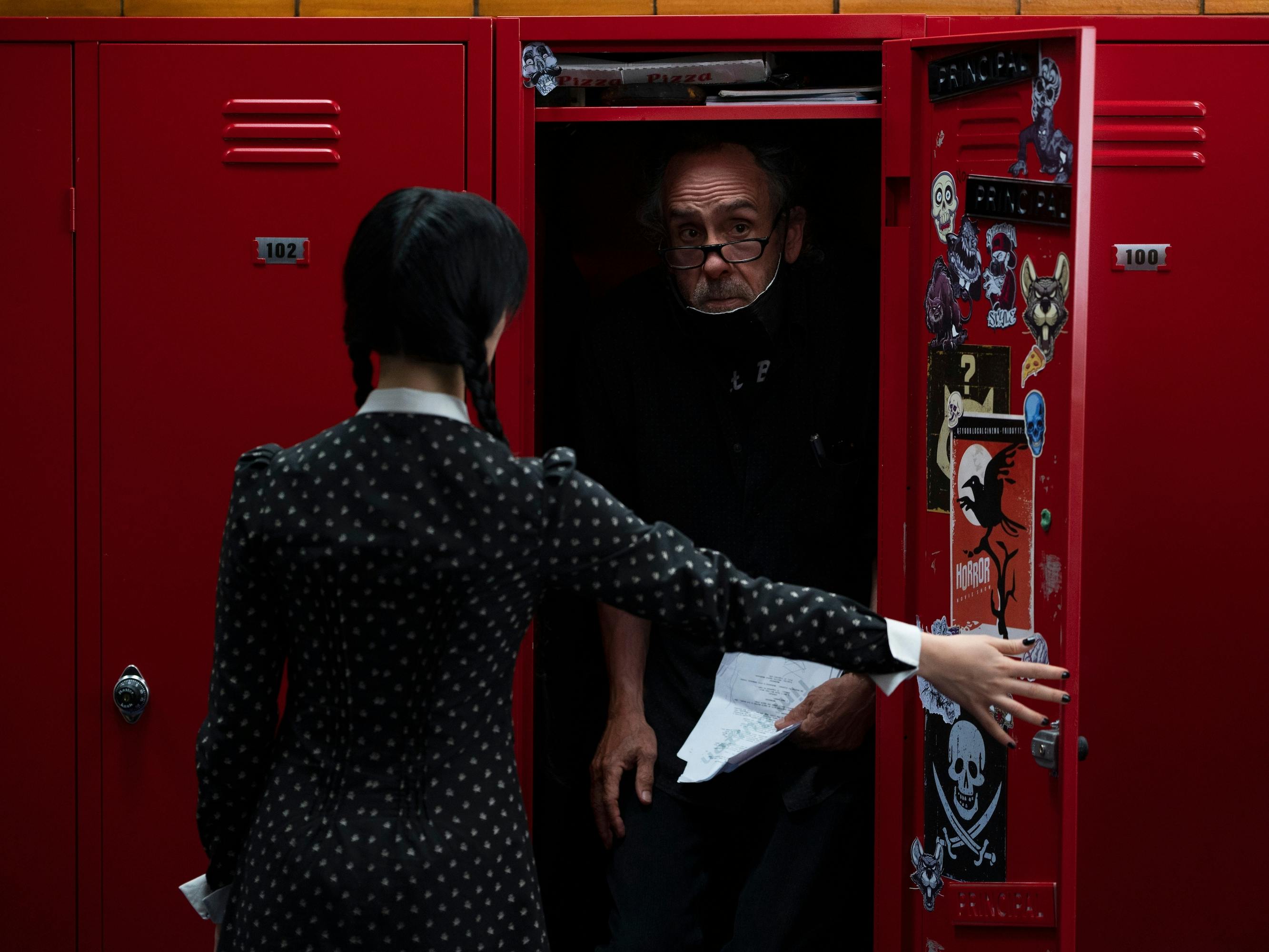
Wednesday Addams (Jenna Ortega) and Tim Burton
Willa Bennett: Wednesday amassed more than 1 billion hours of viewership and more than 150 million households have seen the show. It’s all over social media. How are you feeling?
Jenna Ortega: I’m feeling all right. People are a lot nicer in public now; I have everyone smiling at me. If I’m not in the mood, people go, “Oh. She’s so much like Wednesday.” That’s a little weird.
I can’t really process those numbers. I’ve spent as much time as possible off of social media just because I don’t really like it that much. It was eight months in Romania away from my family. I just know my cast worked really hard, my crew worked really hard, and to see them getting the appreciation and respect that they deserve is very exciting for me.
When did you know that this character was really resonating with you?
JO: I was always kind of compared to Wednesday my entire life. It’s weird because I was a big scaredy cat. I didn’t like horror movies growing up, but I’ve always been interested in gore. When I got the email that Tim Burton wanted to meet with me over Zoom, I was super hesitant because I just didn’t know how I felt about signing onto a series. Talking to Tim a little bit, I felt like we were on the same page about a lot of things. I knew that it could be the start of a really wonderful collaborative process.
What was it about the role that drew you in so quickly?
JO: I knew it was going to be a little bit of a challenge. All teenage girls are written — and not to say that it’s incorrect — as totally rude little brats. You can only do that so many times and make it fresh and different every time. With someone like Wednesday, we have never seen her as a teenage girl before; she’s only ever been [depicted onscreen as] a child. There’s something sweet and endearing about a little child saying really combative, morbid things because she doesn’t know any better. When you get older, there’s a line where it becomes disrespectful or not tolerated. To play someone like Wednesday [you have to] find what that balance is, or when you should add emotion. I knew that I would learn a lot.
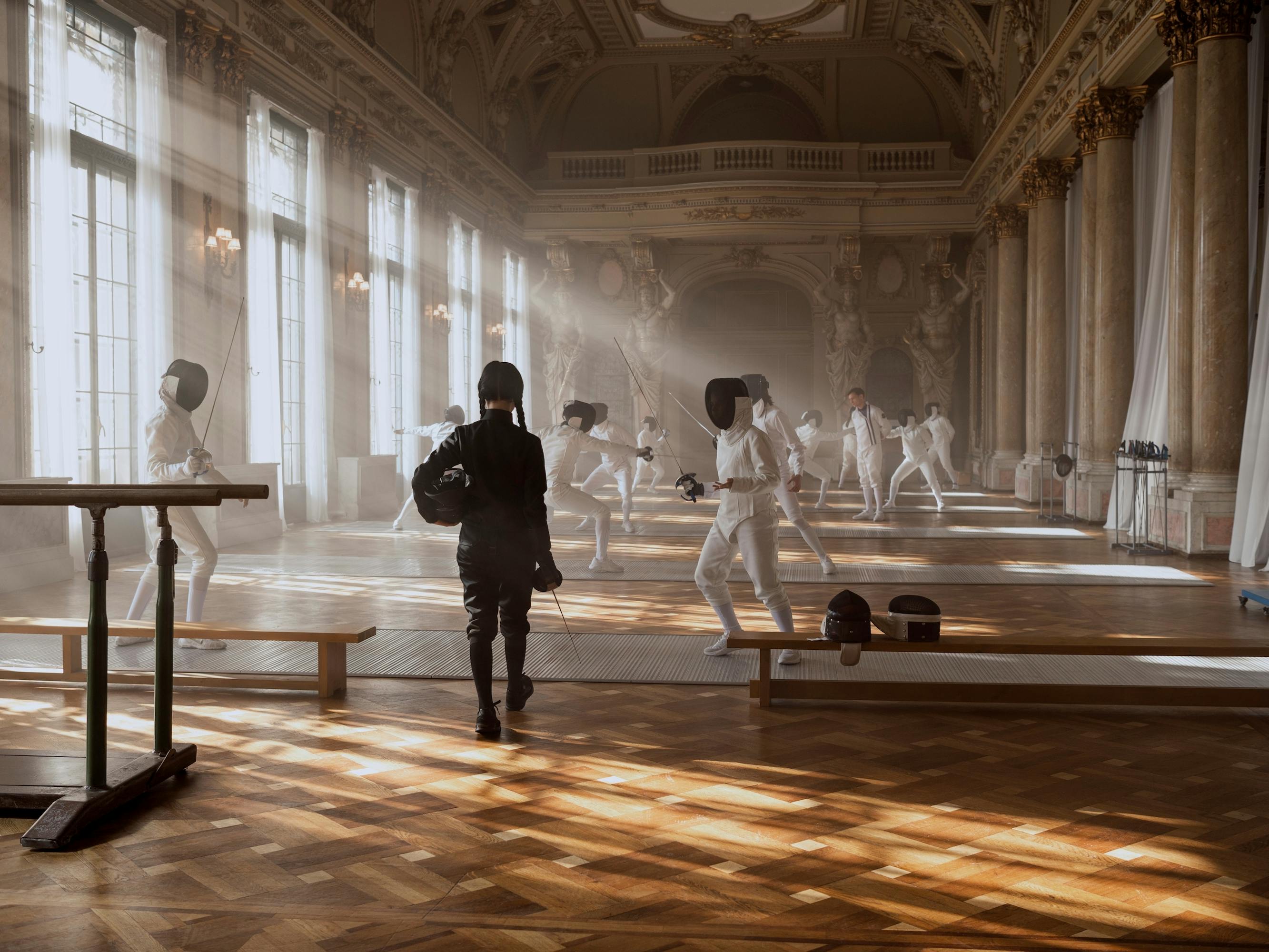
Wednesday Addams (Jenna Ortega)
What was it like to embody such a complex character?
JO: Terrifying. I’m naturally someone who puts a lot of pressure on myself, [especially] working with someone like Tim and then also really wanting to do the character justice because I have so much respect for her, while not ripping anybody off. Christina Ricci: Nobody had ever seen a Wednesday deadpan and sarcastic like that previously. You have to be able to tie in a few nostalgic aspects that keep [the character] familiar for older audiences, but slowly but surely add new layers, new emotions, new expressions.
Was there anyone on set that helped you navigate that balance?
JO: It was always nice shooting with the wonderful actress who plays my roommate — Emma Myers — because her character is such a polar opposite. I just had to remember, Okay, whatever she [does], just run in the other direction.
Also, working with Tim was really interesting because I would ask him for notes and he wouldn’t give me any, which made me panic because it’s super helpful to me when people criticize or tweak. The wonderful thing about Tim that I deeply appreciate is that he trusts whoever he casts completely. He told me that he would be the soundboard for my voice. He would go through the sides and ask, “Is there anything that you don’t like?” I would walk around and do what I wanted to do and then he would ask the crew, “Did you guys get that?” That was a really empowering, exciting experience for me. He’s very respectful and overly generous. I don’t know another director like that.
Was there anything you changed and felt, “Hell yeah. That was the right decision”?
JO: They wanted a flash mob for Wednesday for the dance, and I thought, There’s no way in hell that Wednesday is going to encourage a bunch of people to dance with her. And, I think it’s the beginning of Episode 3: I’m kidnapped by this secret society called the Night Shades. Every time that we did a shot, Tim just told me to play and I would say a different line every time. When you’re jumping around and improvising and stuff like that, it was cool that everyone was supportive and excited to play.
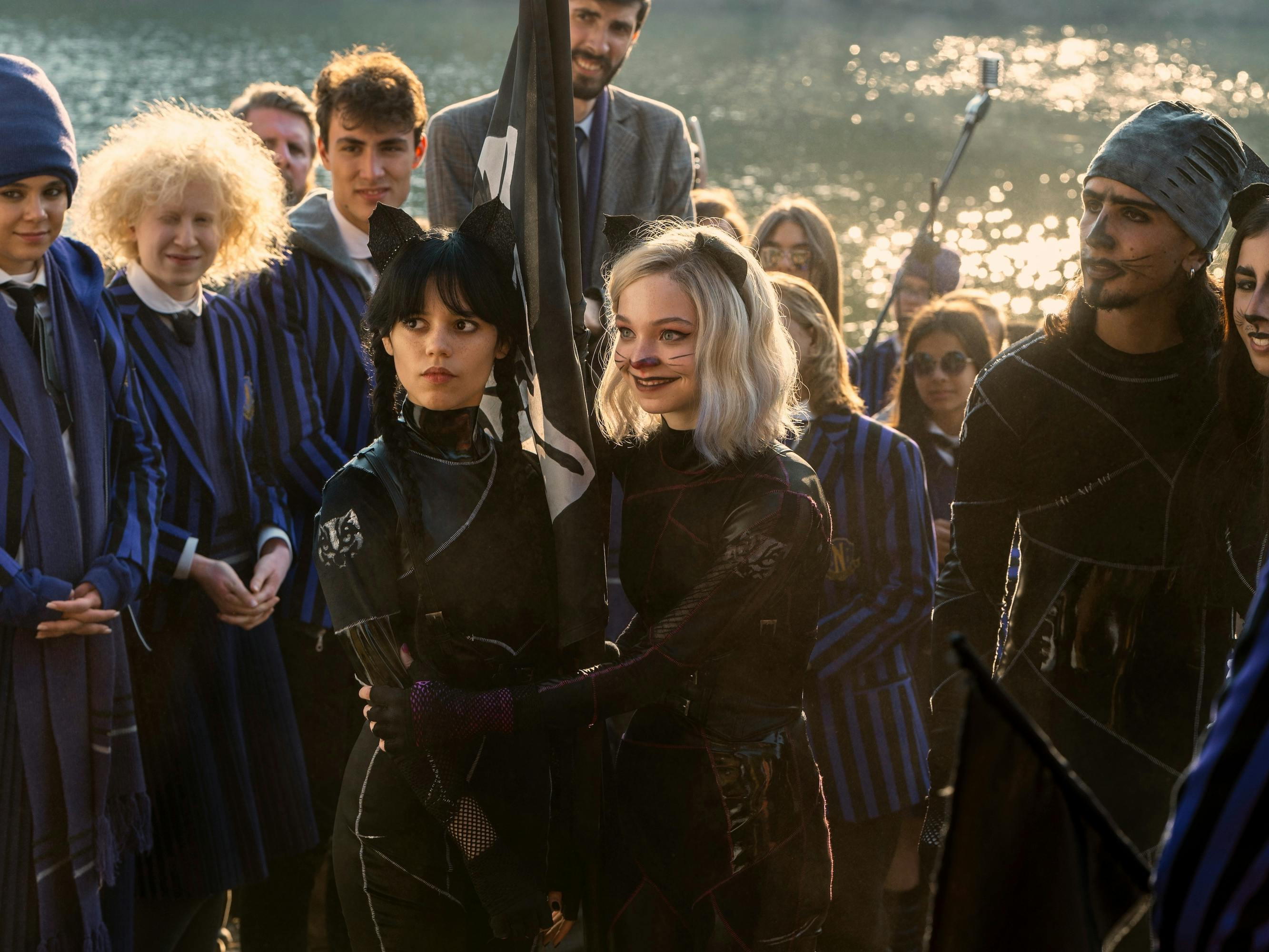
Wednesday Addams (Jenna Ortega) and Enid Sinclair (Emma Myers)
Speaking of the dance scenes, you have spoken publicly about how you choreographed them. What was that like?
JO: Really, really stressful. They had offered me a choreographer a long time ago, and I told them, “Don’t worry. I’ll do it myself. I know the character; I’ll figure it out.” Then, a week before we shot the dance, I got the song: It was “Goo Goo Muck” by The Cramps. I love The Cramps, so I was excited. I was also doing fencing that week. And I had a huge cello piece: Vivaldi, “The Four Seasons,” “Winter.” I remember two days before we shot the dance, Tim came into my trailer during lunch and was like, “I want to see how you’re feeling about the dance. I trust you. I’m sure you’ve been working on it.” I looked at him and was like, “Oh yeah . . . Yeah, totally.”
It’s true I had been watching a lot of stuff prior because I knew that I was going to have to come up with this dance at some point. So I found archival footage of kids dancing in clubs in the eighties, I watched Lene Lovich music videos, Siouxsie and the Banshees performances, Denis Lavant in Beau travail in the greatest end scene of all time. [Lavant] took his time with it: He would pause and then do something really violent, and then pause and do something really violent. Bob Fosse was another really big inspiration for me. I had taken all of this footage, and then about two nights before I decided, Okay. I guess I’m just not going to sleep. I’m going to try to pinpoint things. Then, of course, you get there on the day and everything’s different and there are parts where you just have to wing it.
I’ve done the dance. How many people here have done it? Everyone? It’s amazing.
JO: Netflix told me that it was going to be a TikTok thing and I was like, “Oh, okay. Yeah, sure,” and then it was. It’s really amazing.
Was there any inspiration for your character that you still embody in your everyday life?
JO: I’m a lot more comfortable with my dark sense of humor. I grew up very much a people pleaser. I feel like a lot of my life, or a lot of my teenage years so far, has been trying to keep up with everybody and make sure everything was fun and bright, and then you kind of realize that you don’t have to do that all the time. At the end of the day, if someone’s not going to understand a joke I tell or maybe thinks I’m mad when I’m not, it is what it is. All I can do is be kind, be respectful. I’m not going to try to be something that I’m not anymore.
Are you surprised by just how many people are obsessed with it?
JO: The thing about this series is, again, I was hesitant to do it. I know how much she means to a really big group of people. I’m introducing an incredible character — one of the greatest characters ever created — to a new generation. There’s a lot of pressure that comes with that. This is the first time where I am kind of playing a cartoon. It was the first time that my physicality was completely different. Tim wanted me to blink as few times as possible. My posture has never been better. You’re walking downstairs but not bouncing; you’re just kind of trying to levitate as much as you possibly can.
I remember on set just not knowing if what I was doing was right. But it’s definitely the project that I’ve stayed up at night thinking about the most. Even to this day, I can’t sleep at night because I think, Oh, I should have done this.
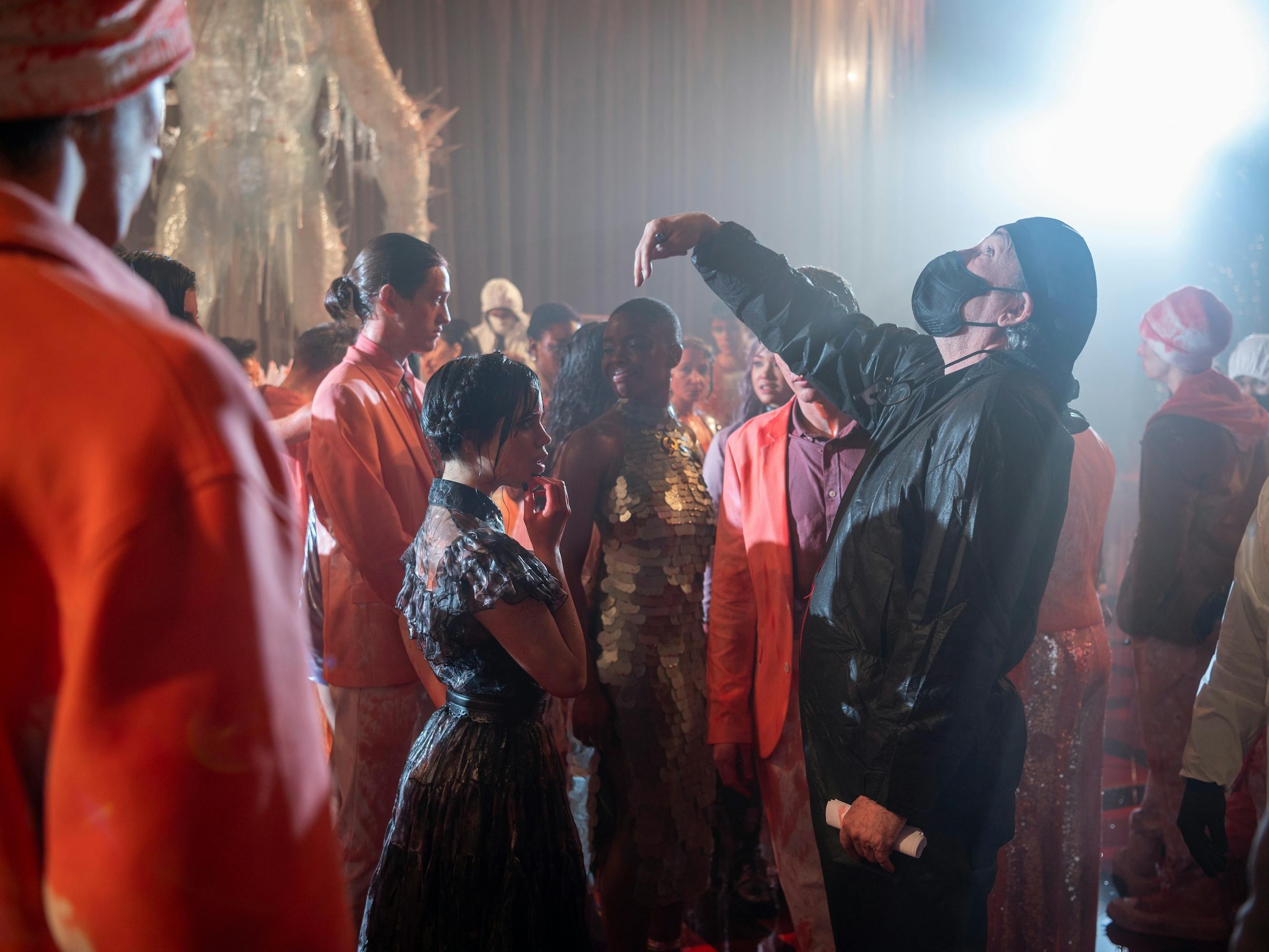
Wednesday Addams (Jenna Ortega) and Tim Burton
Have you had a fan interaction where you really see how much this means to people?
JO: I was at this comic con or whatever and multiple people fainted as the doors opened. One, Are you okay? Two, you’re looking around like . . . The show has [only] been out for days!
Something else I really identified with is how independent the character is. Do you identify with that or is that a new thing to embody?
JO: I naturally am very independent. I traveled with my parents for work while I was a minor. My parents have six kids. My mom — a full-time E.R. nurse — would drive me back and forth from L.A. five to six times a week, a six-hour drive roundtrip, just so I could have a five-minute audition that I wouldn’t even get. I got my G.E.D. earlier so I could book more jobs, because I was 18 and could work adult hours. I’m very, very appreciative and very, very grateful.
Why do you think there are so few characters that are young and independent like that?
JO: I do feel like Hollywood is gradually opening up to diversity. A lot of characters are written by people who come from a different time and have a different understanding of relationships and what life is in the new world. I think that that’s why sometimes teen writing can be cringey or all the relationships are hetero or young women are shown as damsels in distress rather than the actual superhero or the actual protagonist.
Something that I really appreciate about my generation is that everyone has such a platform and a voice. Younger people are making larger steps sooner, which is really exciting because then we’re getting into the room and starting conversations. Whether that’s dialogue that they have amongst themselves or dialogue that they have with older generations, I think that there’s good work to be done. Like you said, there’s not enough representation of young, independent, powerful, confident teenagers; everyone wants them to be insecure and that’s something that Wednesday isn’t. I’m really glad that she’s out there now.
Do you feel like we are moving in a positive direction?
JO: When I was younger, it was really hard getting jobs because a lot of leading ladies weren’t Latina. When you’re a child actor, you’re either playing the daughter of someone or a younger version of somebody and there are just not a lot of opportunities. It was really weird and frustrating and confusing growing up and not being able to do certain things because of skin tone or appearance. A majority of the jobs that I booked were meant for Caucasian actresses.
What’s really exciting to me is a lot of the jobs that you see now are open ethnicity or are strictly people of color. I feel like, because we also have a lot more people of color behind cameras now, directors and producers are making big moves. I still think there are some people in high positions of power who are stuck in their old ways, but they’ll die off soon.
What’s one moment where you realized how much the representation part of it meant to people, where you really felt your impact?
JO: When I was going to turn five years old, I asked my mom if I could dye my hair blonde because I really wanted to look like Cinderella. A couple of years ago I did this Disney show called Elena of Avalor, [which was] Disney’s first Latina princess. Seeing young Latinas — young girls of all colors — running around in little Elena costumes or little Isabel (my character) costumes was crazy. That was a moment I realized, Oh. The work that you do — Latinos being shown in a positive light — is such a big deal.
